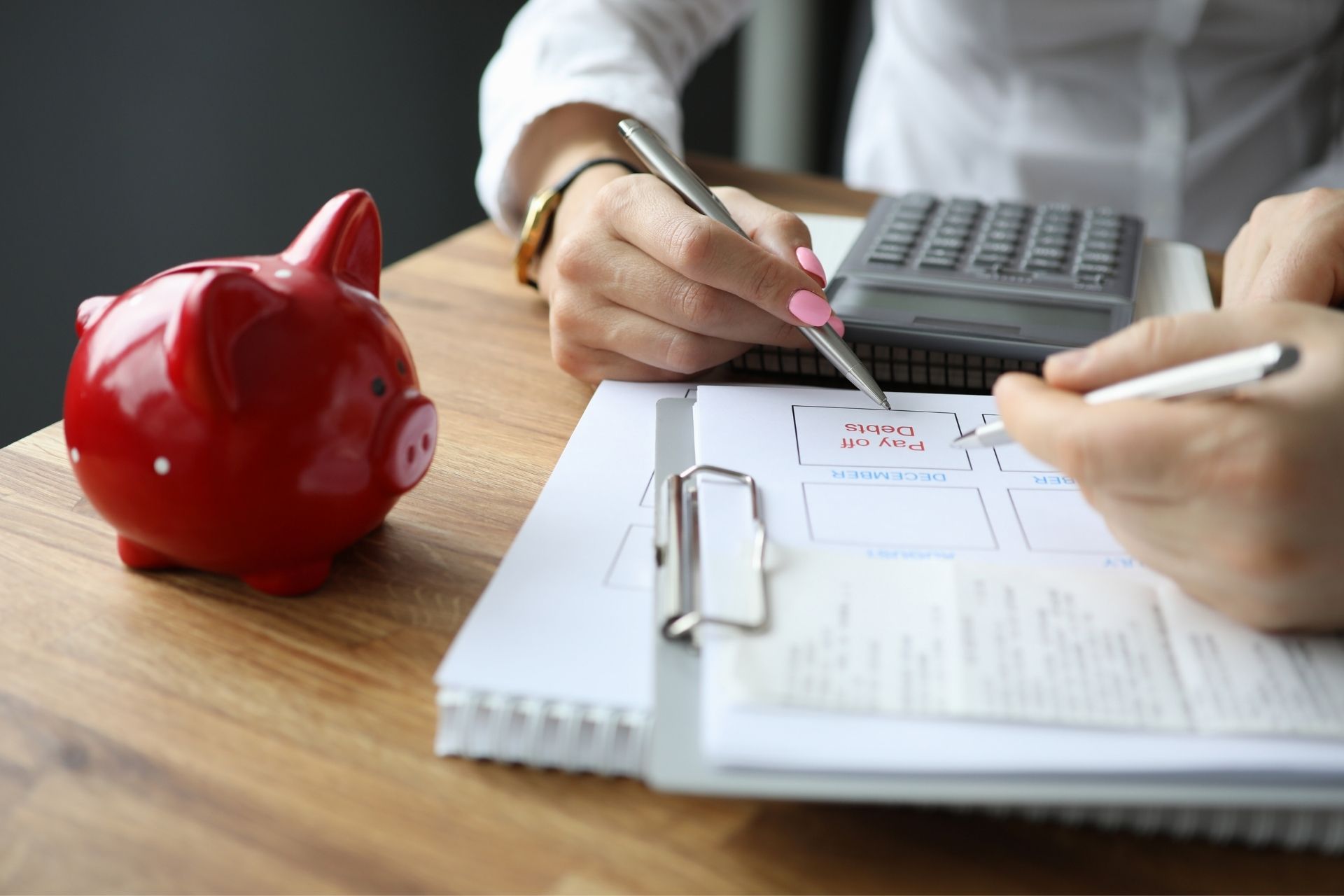
There’s no denying that financial literacy is the core reason most people have been able to amass a lot of wealth and become financially successful. A couple of things make you financially literate, one of which is your set of habits regarding how money is handled.
If you have bad money habits, it becomes impossible to succeed financially. You must learn to adopt and build better money habits in order to spend money responsibly and sustain your financial status.
This post covers some of the most important better money habits you must possess, whether you’re currently broke or succeeding in your finances. As you learn and master these habits, you’ll realize how feasible it is to manage and sustain your finances.
What Are Better Money Habits?
Better money habits can be referred to as the positive things you do to ensure that your finances are properly spent, managed, and accounted for. Habits like these are very important because they determine if you would be financially successful or not, especially when you’re not coming from a wealthy background.
How Can I Improve My Money Habits?
You can improve your money habits by making the right decisions concerning how your hard-earned money is spent. Improving your money habits also entails understanding your cash flow and expenses, and this understanding would mainly guide how you use up and manage your finances. That’s financial literacy right there.
Why Is It Important To Have Good Money Habits?
Having good money habits is as important as making money itself. By adopting good money habits, you are gradually becoming financial literate, and then it would become almost impossible for you to end up financially stranded.
In this 21st century, money is like vapor, and you need to learn how to contain the vapor, so it doesn’t evaporate into thin air and get lost. This is why it’s important to equip yourself with good money habits so that you won’t lose money unnecessarily and become broke suddenly.
How To Develop Good Money Habits
Before developing good financial habits, you need first to have a grasp of your financial status. That is, you need to have a clear understanding of how much money you earn and how much money goes out of your pocket.
Once you fully understand this, you must start learning how to protect your finances by implementing some simple yet brilliant financial techniques. By doing this, you are simply developing good money habits.
Benefits Of Good Money Habits
Once you adopt good money habits, your finances will definitely experience positive changes. It would also stabilize your finances and improve your knowledge of handling money.
Besides, here are some of the key benefits of having good money habits:
- Saves you from future debt
- Enables you to achieve your money goals
- Enables you to make the most of your money even if you don’t earn a lot
- Helps you spend your income wisely
- Makes you a financial literate

10 Good Money Habits
If you have been looking forward to setting aside some good money habits to build, here are some instrumental financial habits you should start practicing now:
1. Create A Budget
Building your budget is like counting your costs when you are about to embark on a project. It is a very important money habit that many people neglect.
After receiving your paycheck, you can’t just go ahead and splurge all your money on some insignificant expenses you won’t be able to account for by the end of the day. You need to build a working budget to determine how your income should be properly spent.
Budgeting is not only meant for rich folks and people who earn large chunks of money. You too, need to start budgeting your income even if you earn little. To help you through this process, check out this helpful guide that shows you how to budget your money step by step.
Remember that budgeting is one of the better money habits that will improve your finances.
2. Clear Your Debt

Millions of people across the United States are in debt, and that’s not really an issue. Not being able to clear your debt is actually the issue. If you want the best for your finances, you need to start figuring out how to pay off your debt so you can be free to build a solid financial life.
Paying off your debt might not be something you can quickly pull off. It could take a while, especially if you owe a lot of money. Nonetheless, what matters is your progress.
As long as you have a feasible repayment strategy that can help you clear your debt slow and steady, you’d be fine. You can speak with a seasoned financial adviser to gain insight into handling debt repayment.
On the other hand, you should know that clearing your debt may require you to boost your cash flow, thereby increasing your income. This may entail working multiple jobs, starting a side hustle business, or changing your current job to a more lucrative one.
3. Save Before You Spend

Saving before spending is one of the common good money habits examples that you should emulate.
Saving before spending is one of the common types of budgeting strategies that is being used today. This entails saving a certain percentage of your income and spending the rest of it however you like.
It works well, especially for those who earn a lot of money, because after saving a portion of income, there would still be enough left to spend on expenses throughout the month.
But even if you aren’t earning a lot of money, this strategy can still work for you. You only need to do your calculations right. That is, make sure you itemize all your expenses for the month, so you can determine how much money needs to be left after saving out of it.
4. Avoid Irrelevant Expenses
Impulse buying is one of the common reasons many people live paycheck-to-paycheck, and they always go broke before each new month.
You don’t always have to buy certain things because they seem appealing or enticing. Some things are just irrelevant to you, which means you don’t have to spend a cent on them.
As one of the good money habits to build, you must learn to avoid irrelevant expenses. This is why a budget is highly important. As it should be, a budget would only contain the expenses that are vital to your sustainability.
By sticking to a budget, it means you won’t overspend or buy anything that’s not important to you. Basically, budgeting would guide your spending habit and prevent you from incurring irrelevant expenses.
5. Invest
Investing is one of the most innovative ways to improve your finances. Hence, you can consider it one of the best better money habits. The best part is that you don’t have to be rich to invest, although that’s what many people believe.
To make a wise investment, you need to learn how to invest your money in profitable ventures creatively. Study the trends and know what’s happening to discern the ideal investment plan.
More importantly, when investing, it’s advisable to start small. No matter how credible and lucrative an investment opportunity seems, don’t ever splurge all your money on it. That would be the same thing as testing the depth of a river with both feet. You need to take one step at a time, examine the outcome and decide if it’s safe for you to take another step.
Also, investing may require you to seek advice from an expert.
6. Track Your Spending

Most times, it’s important to track your spending. It helps you to discern where your money goes.
Tracking your spending is also very important as it tells you when and where to adjust your spending. You may never know that you are overspending until you take the time to examine your expenses.
To easily track your spending, you would have to check important financial documents such as your credit card history, receipts, and any other document that shows items you have bought within the last two months. Doing this would also help you prepare a perfect budget for your income.
7. Have A Side Hustle

Sometimes, implementing all the brilliant financial tactics and learning numerous better money habits is not enough to make you succeed financially. You may need to improve your finances by building a side hustle.
Fortunately, there are numerous things you can do by the side to generate extra money. It could be a small business or job that requires you to work shorter hours.
Regardless of what you end up doing as a side hustle, the goal is to make extra cash aside from your main paycheck.
8. Create Assets, Not Liabilities
Exhausting money on expensive cars, luxurious houses, and trips can be exciting. However, that’s not how to build a sustainable financial life.
You must understand that creating assets is far more important than splurging money on liabilities. This is why it’s essential to learn to live below your means even if it seems like you have enough money to live lavishly. You don’t have to live like a poor person; instead, live moderately.
You may decide to live an expensive life when you retire. But as long as you still have a lot of years ahead of you to work, you should invest in assets; this would make money work for you and enable you to earn passive income.
Buying shares or investing in real estate is a brilliant way to create assets and secure your future financially.
9. Plan For Big Purchases
Planning for big purchases is one of the better money habits you shouldn’t neglect. This means that for every big purchase you intend to make, you need to make financial plans for it.
For example, if you want to buy a car worth $55,000 and your take-home pay every month is $8,500, you would have to save about $3,000 monthly for at least 18 months; having this in mind is part of planning for a big purchase. That’s if you don’t want to purchase the car on loan though.
On the other hand, if you are going to take a car loan, you must make sure the repayment plan is feasible. You should be able to conveniently make the loan’s monthly payment until it’s complete.
Moreover, sometimes, you may need to increase your cash flow to afford a big purchase. For example, building a side hustle or working multiple jobs. Once you are generating enough money, you won’t struggle to afford big purchases, whether you’re buying the items on loan or not.
10. Shop With A List

Shopping with a list can be likened to having a budget for the month. The main idea behind this is to guide your spending habit and make sure you don’t engage in impulse buying.
Even if you are just visiting the grocery store to get some items, ensure you itemize your intended purchases on a list so that as soon as you walk into that grocery store, you won’t be tempted to buy something else. You would have to stick to the list.
This is one of those simple good money habits that save you some cash.
Final Thoughts On Better Money Habits
You don’t have to be earning a million dollars annually to be financially stable. Your lifestyle and the kind of habits you have towards money will determine if you’d succeed financially or end up looking for who to bail you out of your financial crises.
If you must successfully grow and stabilize your finances, you must learn to practice better money habits.
Pin this for later!


Hi, thanks for the well-written informative content on money habits. We always run behind the money but forget to change our habits first. Thanks for reminding me.